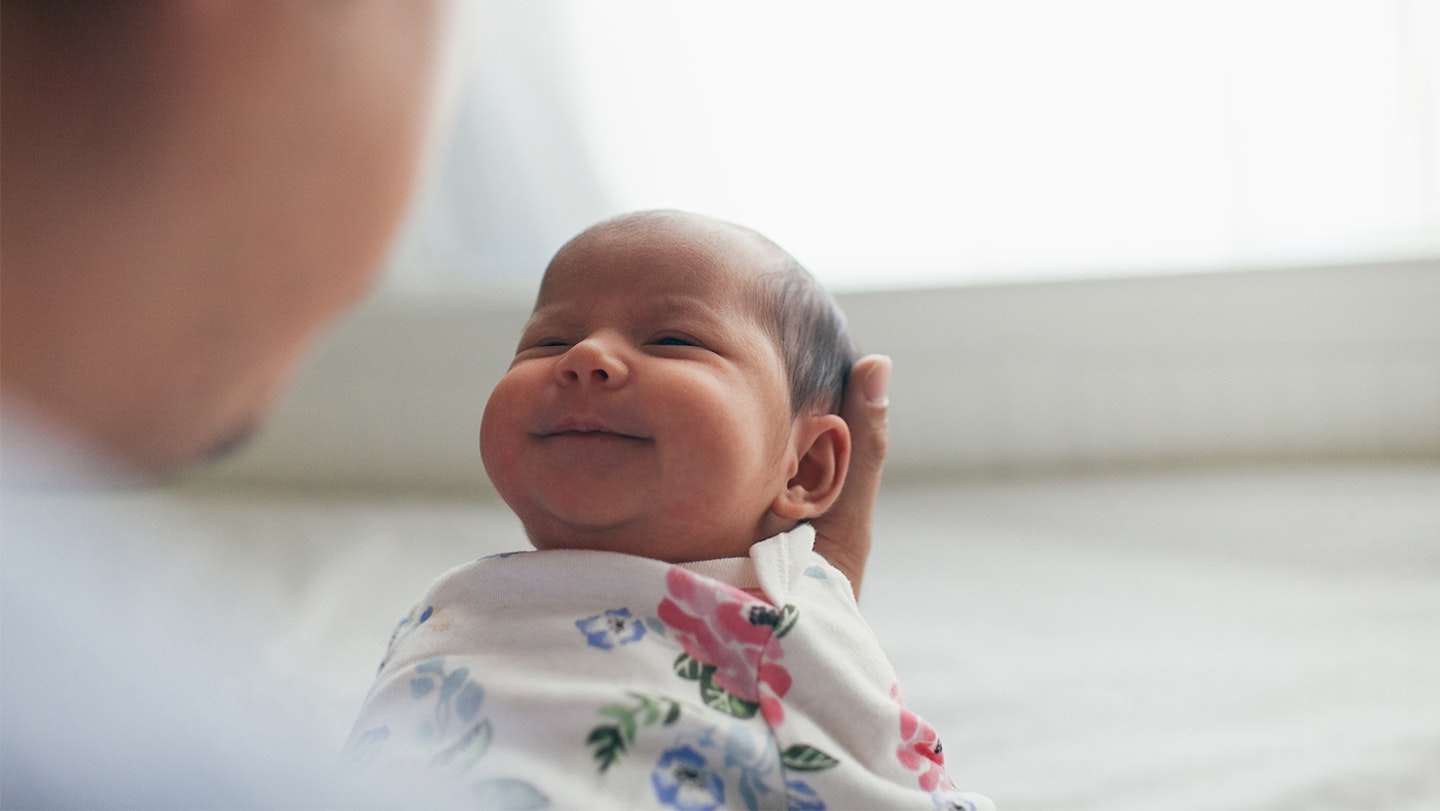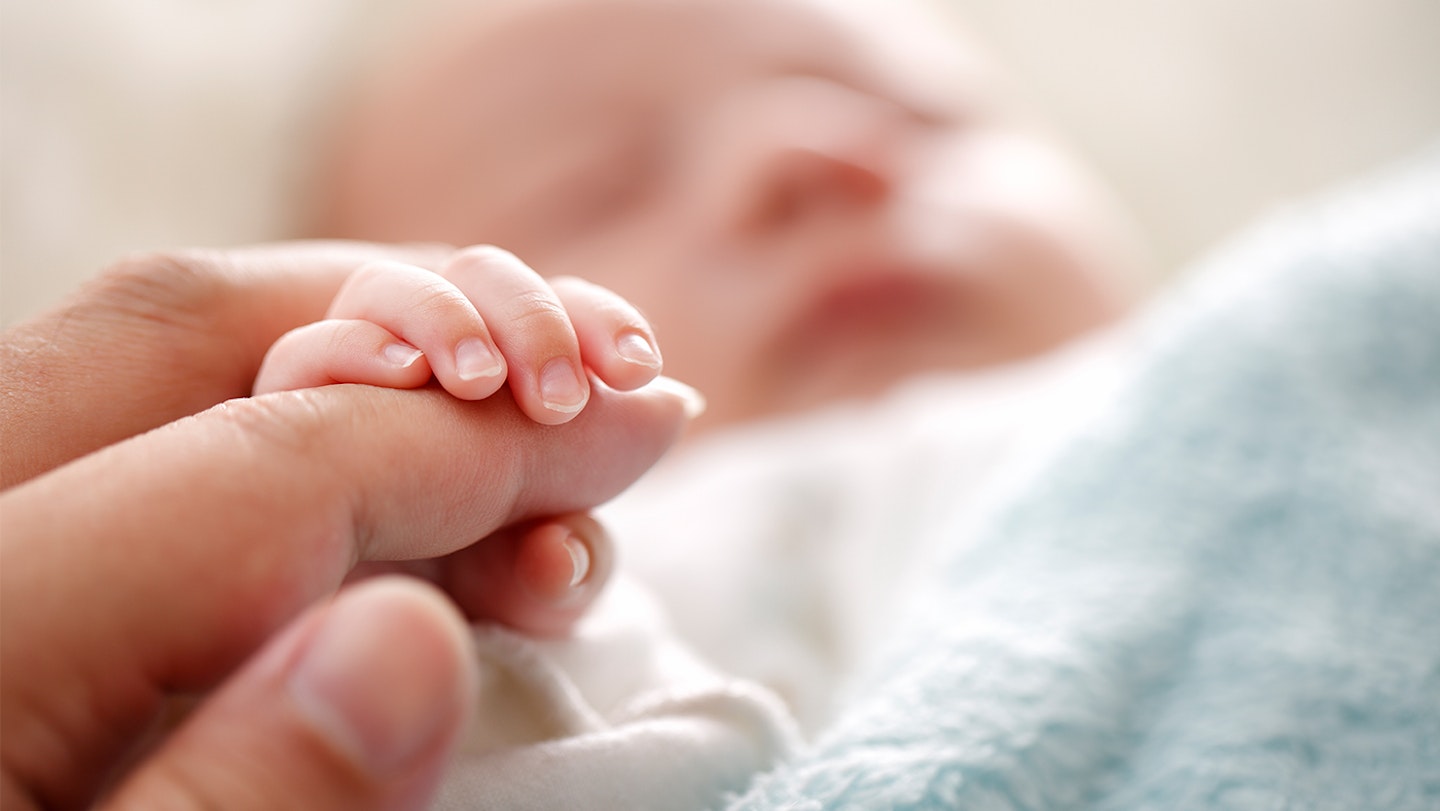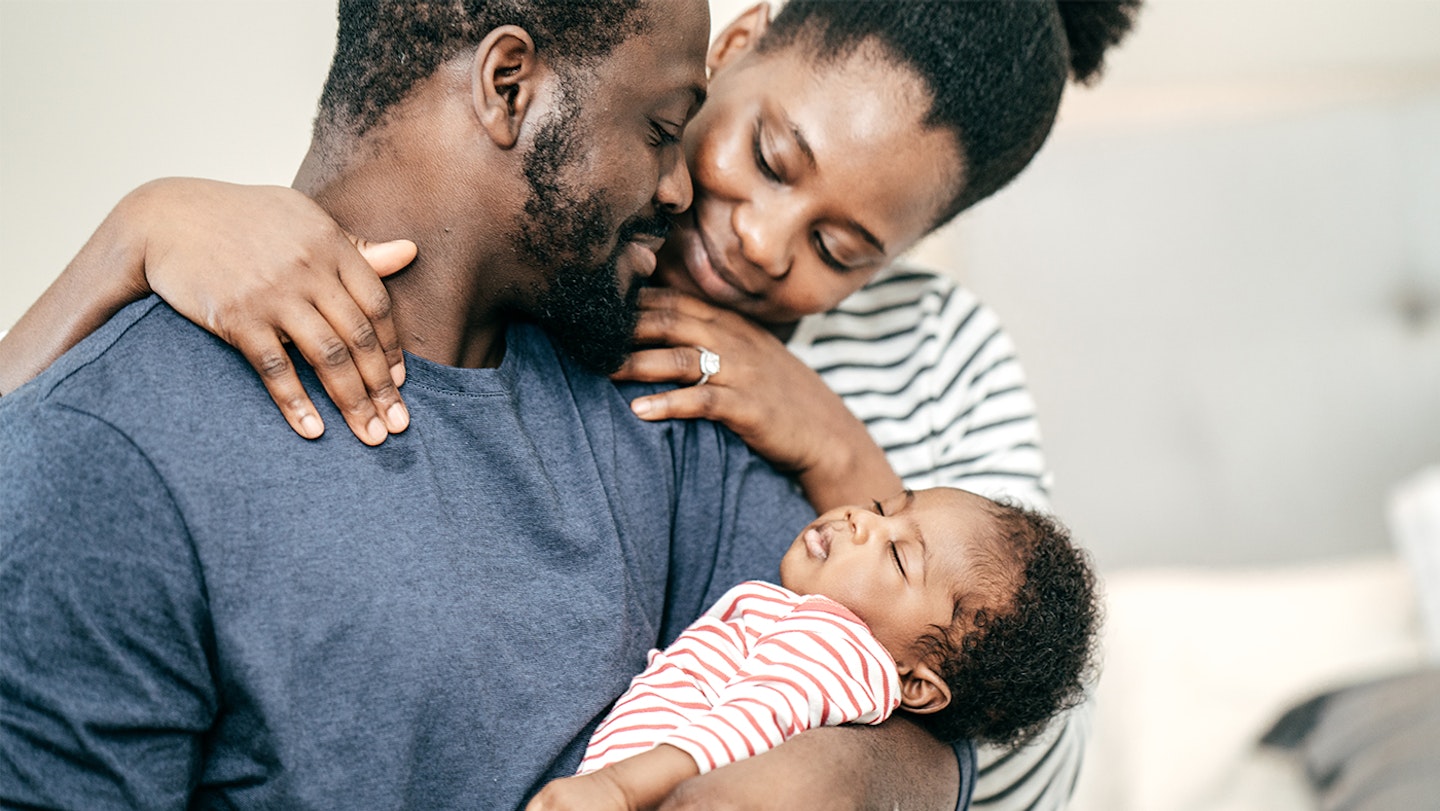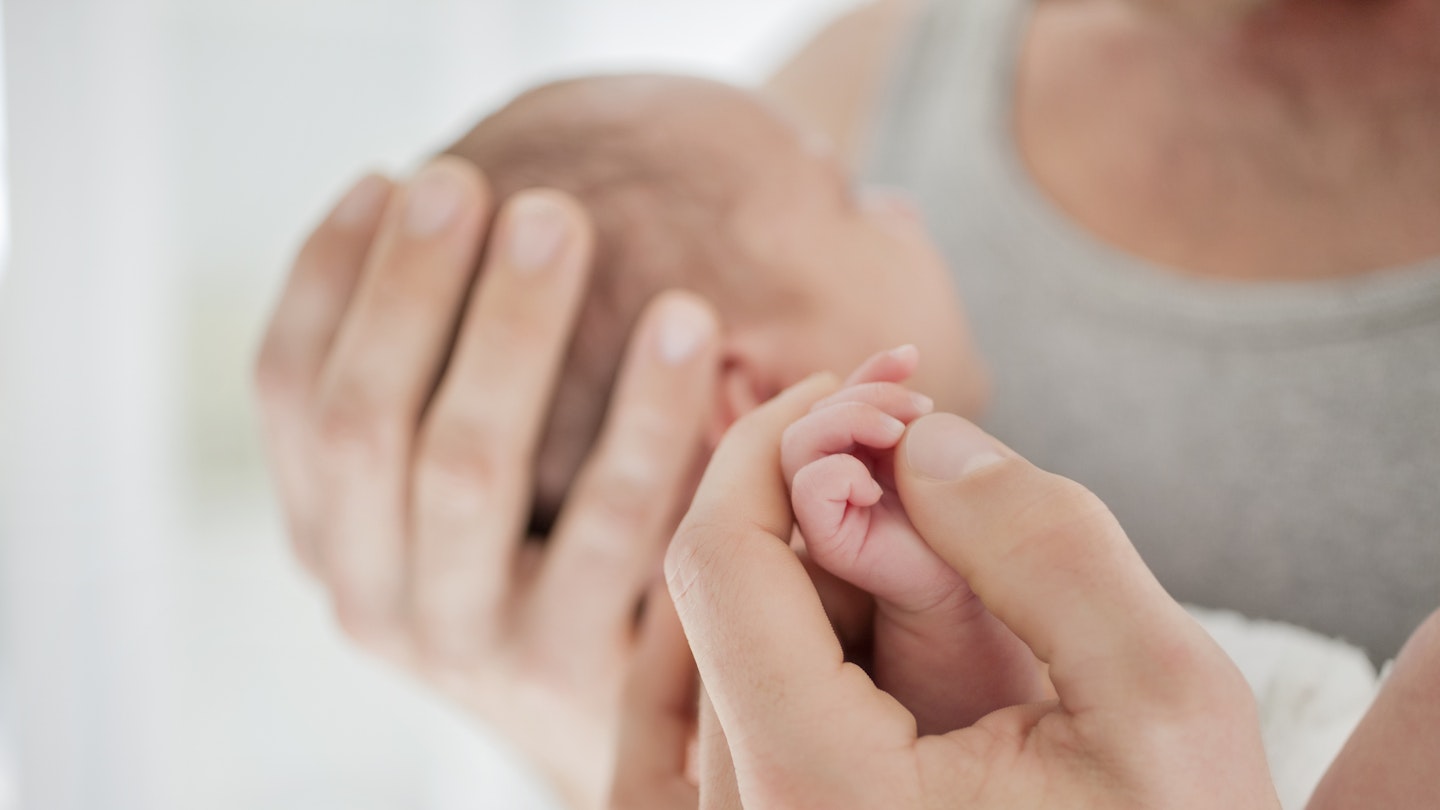You have a 5-week-old baby! You're already in the second month of your baby’s new life, and will probably feel like the time is flying by as they reach all their important baby development milestones. As the days continue, we’re sure you have a few questions about your little one’s week-by-week development. Here you can find all the answers you need about what to expect when your baby is five weeks old.
5-week-old physical development
Babies usually have their first real baby growth spurt between 4-6 weeks. Usually gaining around 140-200 grams per week, this week your baby will likely be closer to the 200-gram mark.
With their hearing fully developed and their eyes close behind, it’s a great time to get out the colourful, musical baby toys and test those new senses.

Your baby's neck is also getting stronger which means they’re finally holding their head up. Granted it’s most likely only for a few moments while they lay on their stomach or sit in their car seat, but when baby is holding their head up, it’s still a milestone to be proud of.
If you haven’t already, this week you're more than likely to see your baby’s first smiles. Trust us, it will make five weeks of sleep deprivation seem like a distant memory.
Your little one's clutching skills have now advanced so that they can hold little items that you place in their hands. You'll probably find their little grip getting tighter around your fingers too this week.
5-week-old cognitive development

More alert
You’ll start to notice your baby is much more alert. They’re now likely to be awake for around ten hours a day, as opposed to six in previous weeks. This means more of their personality will start to show.
Following your movement
A five-week-old should be able to vaguely track your movement from side to side. Their eyes are developing at an incredible rate meaning they can focus more easily and eyesight will improve even more in week six of their development.
Introducing play
Now your baby is awake for longer, you can introduce play into their routine a bit more. Perhaps five-ten minute sessions a couple of times a day (keep it short because you don't want to overstimulate them). Examples could be singing them a song, chatting about objects or landscapes you can see or even showing them a specific toy or cloth book.
How much should a 5-week-old baby be sleeping?
As your baby is much more alert – they’re now likely to be awake for around ten hours a day, as opposed to six in previous weeks – it’s a great time to start establishing a sleeping routine, as you’re definitely due some rest by now! You can help them establish the difference between night and day by following simple steps like keeping the house bright and noise levels normal in the daytime. Of course, every baby is different and what works for one might not work for your baby so give it time to find the right routine for you.
How much should a 5-week-old baby be eating?
Since this week is one for growth spurts and improved cognitive development, it’s normal to find they're hungrier than they were in the fourth week of baby's life. Keep in line with general advice to feed about 150ml-200ml per kilo of their weight, but make sure to follow your baby's lead - they’ll still know just how much food is right for them at this stage.
If you’re breastfeeding your baby, it may also be a good time to think about expressing your breast milk. It’s best to wait until your baby is used to breastfeeding before you introduce a new variation, but after five weeks you’ll hopefully be getting the hang of things. If you’re still struggling, seek some medical advice and chat to your health visitor.
How much should a 5-week-old baby be pooing?
It might sound obvious, but with the increase in food comes the increase in poo! If you're more concerned about what they are pooing than how much, you might want to check out a poo colour chart to put your mind at ease.
However, if you're concerned about frequency, your baby may be constipated and need some help. Look out for a loss of appetite, crying and discomfort before doing a poo, less than three bowel movements a week or a dry hard poo. If you notice these things, contact your GP.
Your 5-week-old baby milestones

Jabs
You still have three weeks to prepare for this one as babies don’t need any jabs till they're two months old. In the meantime, you might want to find out how to keep your baby calm during routine vaccinations.
Colic
Baby colic is defined as uncontrollable crying for hours on end, three times a week for at least three weeks. If you’re struggling with colic, know that you’re not alone and it’s nothing that you’re doing – in fact, this is a condition that affects up to 40 per cent of babies. It's advised to take a trip to your doctor's to try and find the best way of helping your baby through colic.
5-week-old baby milestones
Reflexes
Those newborn reflexes, such as baby's moro reflex, that you'll have noticed after birth will start to disappear this week as your baby gains more control over their movements. Because of this, you might notice them reaching out for toys on their baby gym and their little legs kicking more often.
Holding their head up
During their tummy time, they will be building up their important neck muscles and each week, they'll be able to support their own heads for longer.
First smile
You'll want to know the difference between a reflex smile and a real smile or 'social smile' as they're called. While reflex smiles are short and happen at random times, but social smiles are in direct response to something such as a song or something funny.
Different cries
By week five, you'll probably be getting to know your baby's different cries and what they mean so you'll have an easier time working out why your baby is crying. For example, they'll have a certain cry for hunger, one for tiredness and one for changing. You may also notice your baby is getting better at communicating with you in this way too.
Things to be aware of at 5 weeks
Focus: Your baby’s ability to focus should be improving now and they will likely be able to focus both their eyes on one object. You might notice they’re more interested in complex colours and patterns as they begin to see more detail in the world. Of course, their memory is still developing and so they will quickly forget the objects they could focus on. However, they’re sure to remember your voice and scent by now, so keep cuddling and talking to them for some soothing baby bonding.
Baby acne: Baby acne is actually one of the most common skin conditions that develop amongst infants. Baby acne consists of red and yellow small bumps that typically appear after the first month or so after birth. It is a harmless condition and in almost all cases, the acne completely clears by the time the newborn reaches six months. The best solution is to simply wash your baby’s face with plain water once or twice a day and gently pat it dry.
Sleep deprivation: Interrupted sleep getting you down? It might be worth switching up your diet with some energy-boosting foods.
Postnatal Depression: You may be starting to feel more settled in your hormones, however, if you're overwhelmed by the feeling that everything could go wrong and it’s all your fault, you may be experiencing symptoms of postnatal depression. It happens to one in ten women and is nothing to be ashamed of. Don't be afraid to reach out and speak to your doctor if you’re worried.
